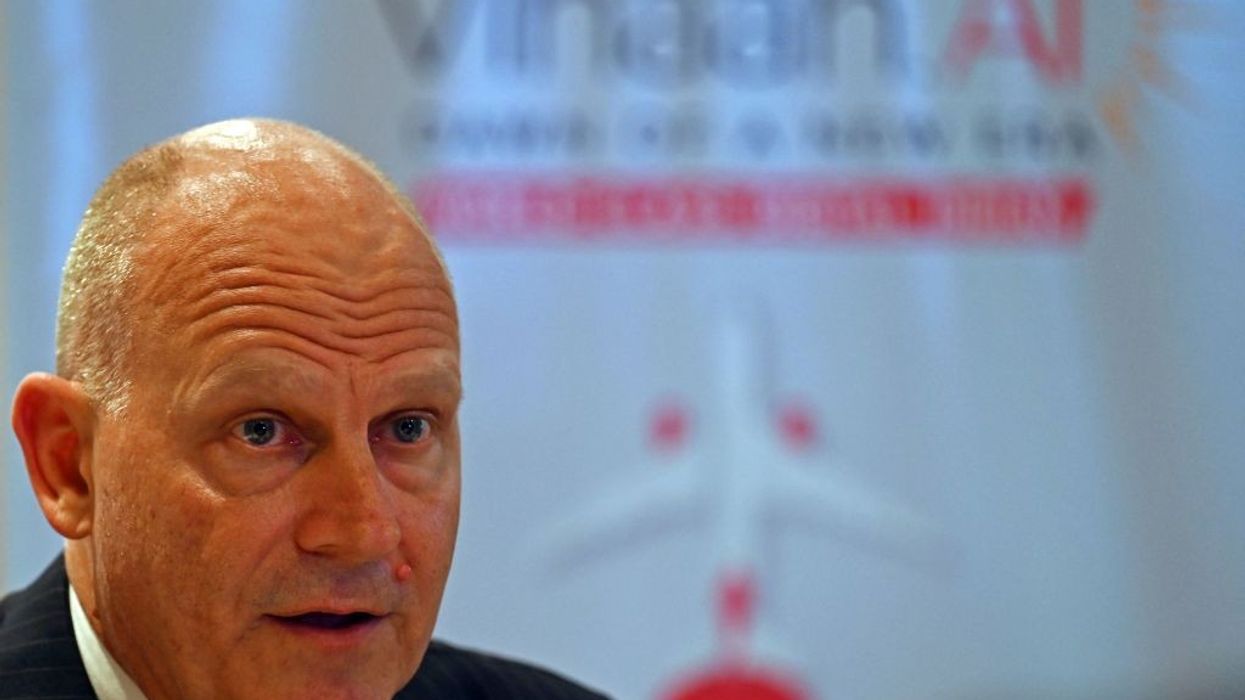AIR INDIA CEO Campbell Wilson has said that the journey to restoring the airline to its former glory is well underway, as part of a five-year turnaround plan unveiled last year.
In recent years, India’s national airline accumulated billions in losses and struggled with a reputation for being late and offering poor service.
Now, Air India, which was bought by the Tata Group in October 2021, plans to capitalise on the immense growth potential of the country's aviation market, which ranks as the world’s third-largest, serving around 145 million domestic passengers annually.
As part of its vision to 'build a world-class airline', the Tata Group has undertaken a massive transformation of the company, involving extensive investments totaling billions of dollars. This overhaul includes the procurement of 470 new aircraft, modernisation of cabins, a rebranding initiative, and enhancements to customer service.
Following the change in ownership, Air India swiftly expanded its fleet by leasing 36 additional aircraft, comprising 11 Boeing 777s and 25 Airbus A320s. This expansion facilitated the introduction of six new international routes and increased flight frequencies on 24 existing routes.
The airline's most significant investment was announced with plans to purchase 470 new Airbus and Boeing aircraft, totaling $70 billion. This acquisition includes 140 A320neos, 70 A321neos, and 190 Boeing 737 MAX aircraft.
In an interview with Al Jazeera, Wilson said that these acquisitions would empower Air India to operate the most cutting-edge and fuel-efficient fleet within five years.
He revealed that the airline intends to invest $400 million in retrofitting its current fleet through the refurbishment of cabin interiors.
"The retrofit will initially focus on the airline’s narrow-body A320neo and A321neo aircraft, after which 40 legacy wide-body Boeing 777s and 787s will receive a complete makeover with all new interiors. Other changes to improve onboard service include introducing premium economy seats on selected long-haul flights and new food menus," Wilson, who joined the company from Singapore’s low-cost airline Scoot in 2022, was quoted as saying.
The airline also invested $200m in new IT to boost reliability and recruited more than 3,800 new employees across several areas to support growth.
However, experts pointed out that Tata Group’s biggest challenge will be addressing Air India’s damaged relationship with its customers.
In addition to ongoing challenges with reliability and punctuality, the airline's reputation has been marred by notable controversies related to its customer service.
It's subsidiary Air India Express has cancelled at least 175 flights this week and several others delayed after more than 100 cabin crew took sudden sick leave on Tuesday (7) night.
Last month, Vistara, owned by the group, was forced to adjust its schedule with flight cancellations amid a pilot shortage.
Henry H. Harteveldt, president of Atmosphere Research Group, remarked that while the investments made by the Tata Group could lay the groundwork for Air India's success, their effectiveness could be undermined if the airline fails to prioritise reliability and punctuality.
Scheduling of new international routes and consolidating carrier Vistara into Air India will be priorities for the airline this year, which was founded in 1932 by JRD Tata.
Wilson said that Air India aims to expand its market share to 30 per cent both domestically and internationally by 2027.
He stressed the goal of shaping the airline into one that embodies boldness, confidence, vibrancy, while remaining deeply connected to its rich history, traditions, and warm Indian hospitality.
However, Wilson acknowledged that achieving this turnaround won't be immediate.
“It’s a marathon, not a sprint,” he said.





